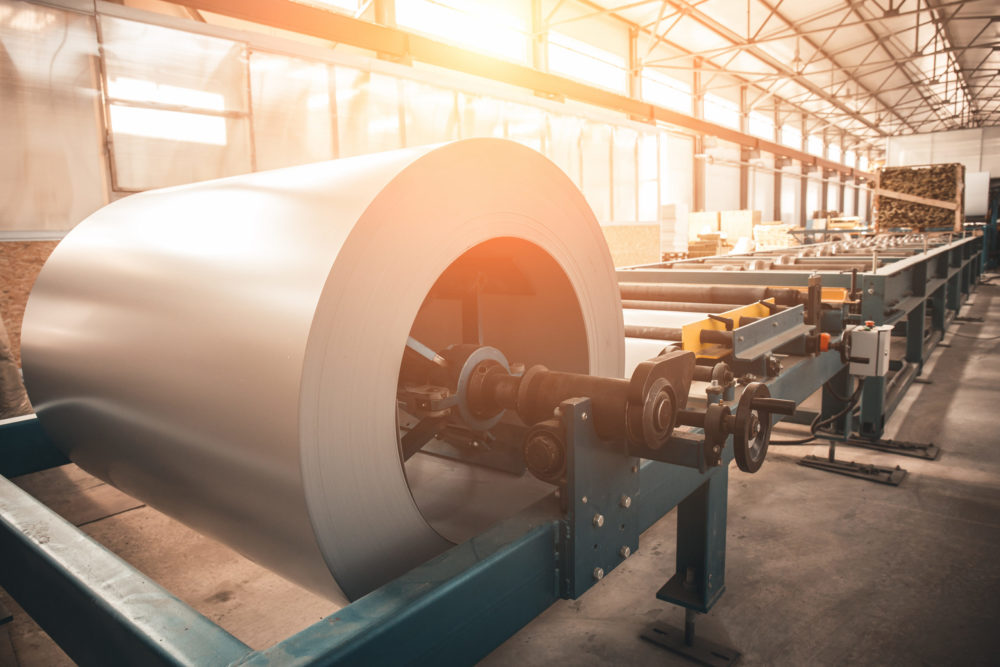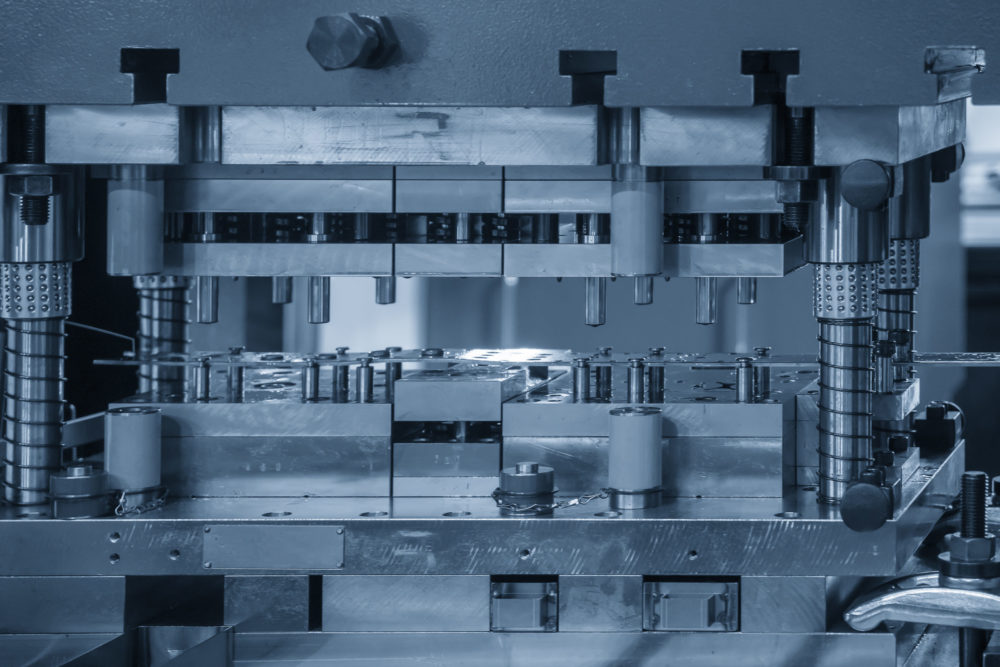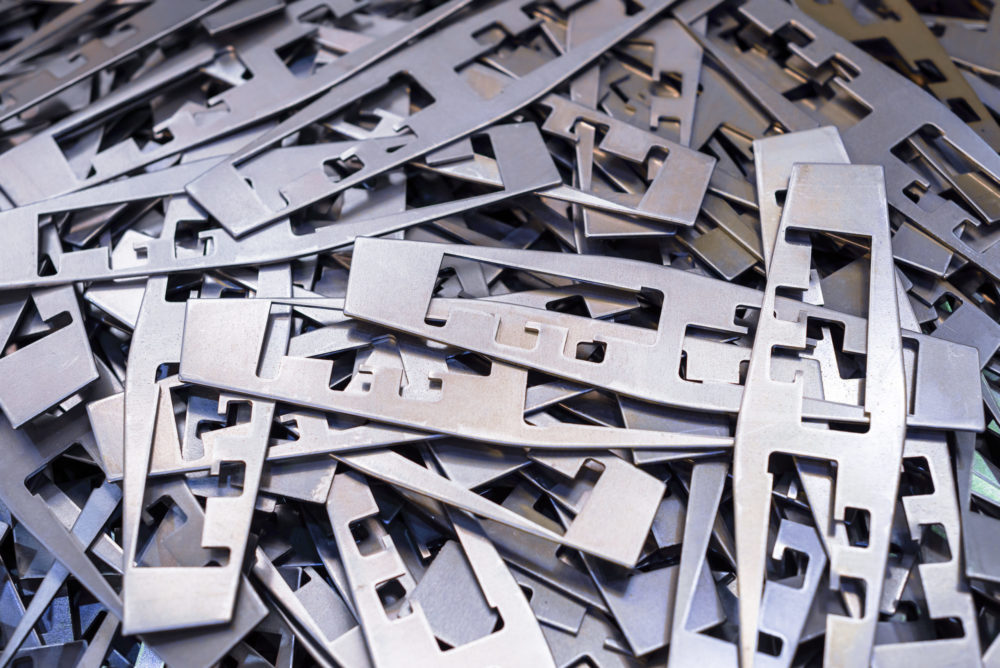Interested in talking to us about one of our products?
Call us at (770) 684-2481 or email at sales@zauderer.com



Aluminum extrusions, roll forming, and stampings are all very important elements in the manufacturing process. Understanding what these processes are and knowing the customizable process for each can help you find the exact products and manufacturing methods you need. This post will answer common FAQs surrounding these manufacturing methods.
Aluminum extruding is a process that takes a “heated log of aluminum,” typically 500 pounds or more and under high pressure, and forcing it through a purpose-built die to yield a net shape of your design. Aluminum extrusions can be found in almost every industry and in a large number of end products because of their endless design possibilities and potential. A common field for aluminum extrusions are transportation industries, including boats, automobiles, trailers, and other recreational vehicles. Aluminum extrusions are also used in medical equipment, furniture, ladders, windows, doors, heating and cooling devices on computers, and other electronics as well as many other products.
Now let’s answer a few questions about aluminum extrusions.
Determining the correct alloys to use in an aluminum extrusion is crucial. It can alter the strength, durability, corrosion resistance, and appearance of the finished aluminum extrusion.
The 6000 series are alloyed with magnesium and silicon. They are easy to machine, are weldable, and can be precipitation hardened, but not to the high strengths that 2000 and 7000 can reach. 6061 alloy is one of the most used general-purpose aluminum alloys. Below is a list of alloys available at Zauderer:
| 6000 series aluminium alloy nominal composition (% weight) and applications | |||
| Alloy | Al contents | Alloying elements | Uses and refs |
| 6005 | 98.7 | Si 0.8; Mg 0.5 | Extrusions, angles |
| 6061 | 97.9 | Si 0.6; Mg 1.0; Cu 0.25; Cr 0.2 | Universal, structural, aerospace |
| 6063 & 6463 | 98.9 | Si 0.4; Mg 0.7 | Universal, marine, decorative |
| 6063A | 98.7 | Si 0.4; Mg 0.7; Fe 0.2 | Heat-treatable |
| 6105 | 98.6 | Si 0.8; Mg 0.65 | Heat-treatable |
| 6463 | 98.9 | Si 0.4; Mg 0.7 | Extrusions |
The shape of the aluminum extrusion determines the exact size that can be fabricated; however, a general range is from ½ inch up to 25 feet.
Yes, the extruder can provide mill, anodized, and painted finishes on the custom and standard aluminum extrusions.
There are many fabrication services available including complex bending, Mig & Tig welding, precise hold punching, milling and nothing, drilling and tapping, mechanical and welded assemblies and all types of mechanical finishes.
The cost of an extrusion die varies greatly based upon the complexity. Zauderer has access to 2,500 standard shapes available, so it is possible that we already have the die ready to go for any project. We also offer the ability to create customized shapes. The cost of a customized extrusion die will depend on the size and intricacy of the extrusion product.
Roll forming is the process of incrementally bending strips of metal through using a placement of precise rollers through a roll forming machine. A roll forming machine will have multiple stands and in each stage the material will be progressively shaped. After the shape is created there are a variety of secondary operations that can be performed to the metal including bending, embossing, flattening, hand welding, in-line punching, mitering, notching, piercing, punching, stamping, tabbing, tapping, and minor assembly. There are a variety of finishes available, including anodized, chrome plated, polished, powder coated, pre-coated, pre-finished, pre-painted, pre-plated and zinc plated. Benefits of roll forming include cost savings especially when producing large quantities, ability to customize and shape products regardless of metal and type of finish, consistent product, and limited scrap. Here are a few answers to frequently asked questions surrounding roll forming.
Roll forming is a manufacturing process that can use virtually any metal and their alloys, including materials that already have finishes on them. Materials available include aluminum, brass, bronze, carbon steel, copper, stainless steel, steel, cold rolled steel, galvanized steel, high strength steel, hot rolled steel, tin plated steel, and vinyl clad metals.
Thickness of roll formed parts can range from 0.018 inch to 0.1644 inch – up to 8 gauge material thicknesses.
Very long parts, up to 45 feet long can be roll formed. Additionally, very small parts around 12” can also be roll formed.
After the shape is created, there are a variety of secondary operations that can be performed to the metal, including bending, embossing, flattening, hand welding, in-line punching, mitering, notching, piercing, punching, stamping, tabbing, tapping, and minor assembly. Additionally, there are a variety of finishes available including anodized, chrome plated, polished, powder coated, pre-coated, pre-finished, pre-painted, pre-plated and zinc plated.
This varies by the complexity of the shape and number of bends to achieve the final design. Cost for tooling is dependent on how many stations will be needed to bring the flat starting metal coil into a final shape and design. Increase the number of stations and the cost increases. In general, a roll forming tool can run between $15,000 – $100,000. In most cases, roll forming is best suited for high volume applications due to the upfront tooling costs.
Stamping is the process of placing flat sheet metal in either blank or coil form into a stamping press where a tool and die surface forms the metal into a net shape. Stampings can be used in various industries and products such as automotive, aerospace, agriculture, appliances, construction, furniture, electronics, and transportation. Let’s take a closer look at a few commonly asked questions surrounding stampings.
Common materials available include aluminum, brass, bronze, carbon steel, copper, stainless steel, steel, cold rolled steel, galvanized steel, high strength steel, hot rolled steel, and tin plated steel.
Most metal thicknesses can be stamped, it mostly depends on the tonnage of the press.
Additional fabrication services that are offered are CNC machining, bending, embossing, flattening, hand welding, in-line punching, mitering, notching, piercing, punching, tabbing, tapping, and minor assembly.
Depending on the complexity of the stamping, a typical cost for a customized stamping dies can range from $2,500 to $50,000.
The lead time for metal stampings typically depends on the complexity of the stamping. However, in general a good time frame is between 8 – 20 weeks.
Typically, a good range annually is between 25,000 pcs to 250,000 pieces.
Zauderer Associates has in-depth knowledge and years of experience with aluminum extrusions, plastic extrusions, and metal stampings. We help to provide all engineering support and design assistance for your projects, no matter how simple or complicated.
Our partners have a large selection of parts and the ability and tools to create custom parts as needed. The quality of all parts are excellent and customer satisfaction is the priority. Our partners offer full-service capabilities so your entire project can be completed with one order from design and engineering assistance to extruding / stamping to finishing and packaging. Click “Request More Info” below to get started today.